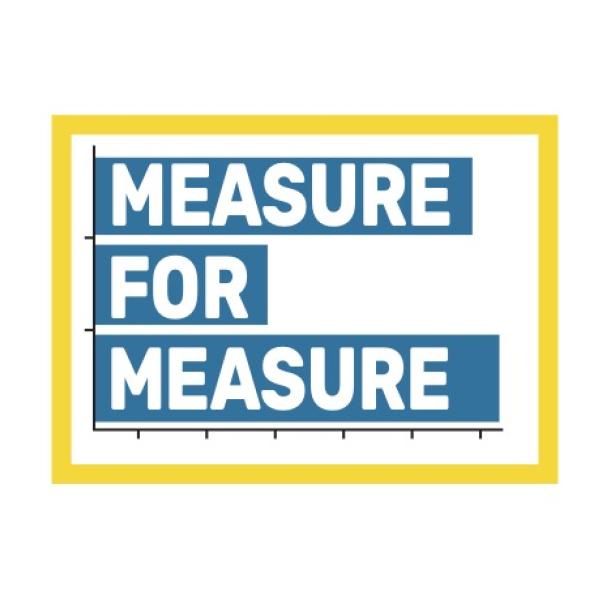From the Archives: Why Poetry By Heart?

In 2013, we celebrated National Poetry Month and Poetry Out Loud by asking the state poet laureates to share with us why they thought it was important to learn poems by heart. While some of these fine poets no longer serve their states as laureates, their words ring no less true and still bear witness to the enduring power of poetry. Speaking of the enduring power of poetry, we hope you'll join us in Washington, DC or online at arts.gov May 3-4 for the 2016 Poetry Out Loud National Finals. These teens may initially memorize their poems just for the competition, but as we hear from them time and time again--each poem turns into a gift they hold onto for a lifetime.
"I have memorized a few poems, and one is Theodore Roethke's "My Papa's Waltz." I often recite it to myself when I am out walking. I love hearing the cadences of the poem inside my body---which is one of reasons to know poetry by heart. It's also a stay against boredom---for example, when you are waiting in line---and also a comfort at many other times." --- Natasha Trethewey, U.S. Poet Laureate*
"Learning poems by heart helps the oral tradition associated with poetry to survive and in some cases be revived." --- Frank X Walker, Kentucky
"Once you have memorized a poem, it is always with you, no matter whether the electricity goes out or you are swimming laps or you are inside an MRI machine, scared and waiting for the procedure to begin. Many people with Alzheimer's or dementia lose the ability to speak, but can still recite poems or prayers or song lyrics if they are prompted to begin. I think that's why we say that we learn poems 'by heart.' It is not the same as learning other types of information." --- Julie Kane, Louisiana
"Having others' poems in our minds and hearts means we're never really alone." --- Karen Kovacik, Indiana
"When you memorize a poem you learn things about it that you would not know otherwise, because the music of the poem enters you in a new way. You understand it at a deeper level and then it becomes part of you somehow." --- Marjory Wentworth, South Carolina
"To memorize a poem is to incorporate it inside your life where it might guide, enlighten, and entertain. To recite a poem with emotion and grace is to understand language in a more profound way, how it knits sound and meaning together to create something bigger than itself." --- Mary Swander, Iowa
"You become the poem [by memorizing it]. And then you re-compose it with your most personal core---your sound-voice-body." --- Juan Felipe Herrera, California*
"Memorized poems invite readers to immerse themselves in the musical language of story. Memorized poems introduce youth to the language of heart and, later, of soul." --- Patricia Frolander, Wyoming
"Poetry is partly a bodily art; if we read it only in silence, we lose that crucial physical dimension." --- Sydney Lea, Vermont
"Not only does memorizing allow you to explore the emotions and messages of poems when you are performing them, but it also allows you to discover nuances of poems when you are walking down the street, eating breakfast, taking a shower, etc." --- Kealoha, Hawaii
"When we memorize a poem, we truly learn it by heart and in heart; the poem becomes part of how we know ourselves and know the world through ourselves. Memorizing poetry also expands our understanding of the possibilities of language, including how words can connect us to what's beyond words." --- Caryn Mirriam-Goldberg, Kansas
"When I was young, I went along with the then-common notion that memorizing poems was an example of mere rote-memory education. I long ago came to realize that it's much more than that. Memorizing may be the most intimate way to experience a good poem. The poem becomes a part of you, a treasure you can carry wherever you go." --- William Trowbridge, Missouri
"[Memorizing poems] is how you learn the shape of poems. The shape is very important." --- Andrew Glaze, Alabama
"I heard my taciturn and reserved father recite poetry to me as a boy and I believe from that first instant I intuitively knew that words could be both music and magic. And soon after the desire began to grow deep within to be able to make my own words become music and magic, capable of singing and capable of transforming the very way I and others see this crazy world." --- Marc Harshman, West Virginia
"[Memorizing a poem] is the closest thing to writing the poem yourself. You take in a poem's beat and breath, learn the music it makes by saying over and over, relive every small decision as you speak it out loud. It becomes yours, and forever; you can retrieve it whenever you need it, or someone else needs it." --- Kathleen Flenniken, Washington
"When you're lost in a snowstorm, or imprisoned with only a wall to talk to [the poem is] a companion no one can ever take away. Because a poem can lay flat a songworm every time (although many of the greatest songs are also poems). Because a memorized poem can fill a gap in conversation. Because, like "God's Grandeur," a poem recited out loud can be a gift of joy. Because, like the excerpt from Sir Walter Scott's "Lay of the Last Minstrel" that infuses Hale's "The Man Without a Country," a memorized poem can remind you, anywhere, when you need to be reminded, of lifetime values." --- Dick Allen, Connecticut
"Learning a poem by heart makes us participants in a uniquely human experience with pre-history origins. A poem learned by heart can circumvent the head, comfort the soul, distract demons, and provide entertainment for the restless." --- Jan Seale, Texas
"To me, [memorizing a poem] has everything to do with the way in which 'internalizing' language at its highest level---in its supreme form---builds inside the subconscious a command of the spoken word, a confidence in communication, as well as in the soul of our forethought in critical and/or difficult situations. Proof that it is important to everyone in every field." --- Nathan Brown, Oklahoma
"A poem is a creature of sound; it's meant to be heard. To know a poem by heart (what a marvelous metaphor!) is to carry that poem's physicality within our own physical selves." --- Paulann Petersen, Oregon
"There are times when only lines from a poem will suffice to help even the worst suffering." --- Sheryl Noethe, Montana
"Poems that you know by heart, or even lines you remember, help attract and concentrate emotional experience that otherwise might vanish before fully felt." --- Max Garland, Wisconsin
"Memorizing a poem engages several levels of intellect and emotion simultaneously. We come to know in the broadest array of means possible, blending the conscious and unconscious realms of art in a manner not far distant from the poem's origins." --- Kevin Stein, Illinois
"When someone learns a poem by heart, they embody the poem, giving it sustenance, turning it once more into the living thing it was meant to be during the original creative process....In return, the poem becomes a faithful friend; it stays with the reader (with no other medium required!) and speaks up when it is most needed, whispering a truth at risk of being forgotten, whispering beauty." --- Sofia Starnes, Virginia
"Speaking a poem by heart connects you to the Greater Conversation, whatever your sorrow or bliss, whoever your god. It also lowers your blood pressure." --- JoAnn Balingit, Delaware
"When you can spek the lines of a good poem on your own, even though the poem is not one you created, in a sense it is yours." --- David Allan Evans, South Dakota
"Learning poems by heart gives one an internal library that can never be lost or damaged or taken away. These poems travel with us and we're constantly in dialogue with them." --- Joseph Bathanti, North Carolina
"I think memorizing a poem is the best way to know a poem. A memorized poem goes down into the bones; it becomes a part of a person's inner landscape." --- Joyce Sutphen, Minnesota
Natasha Trethewey served as the U.S. Poet Laureate Consultant in Poetry from 2012-2014. The current Poet Laureate is Juan Felipe Herrera.




